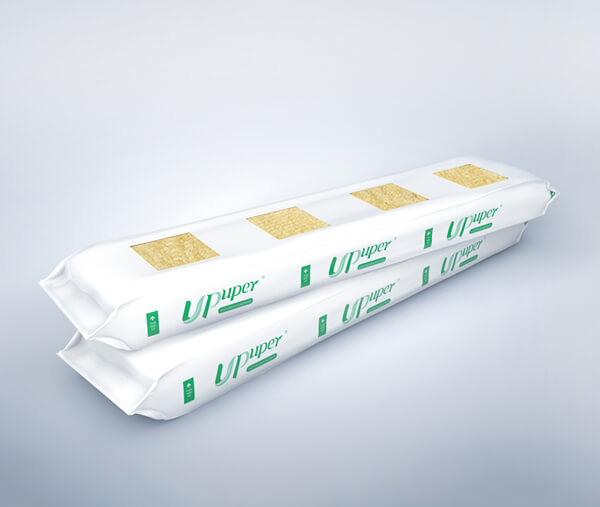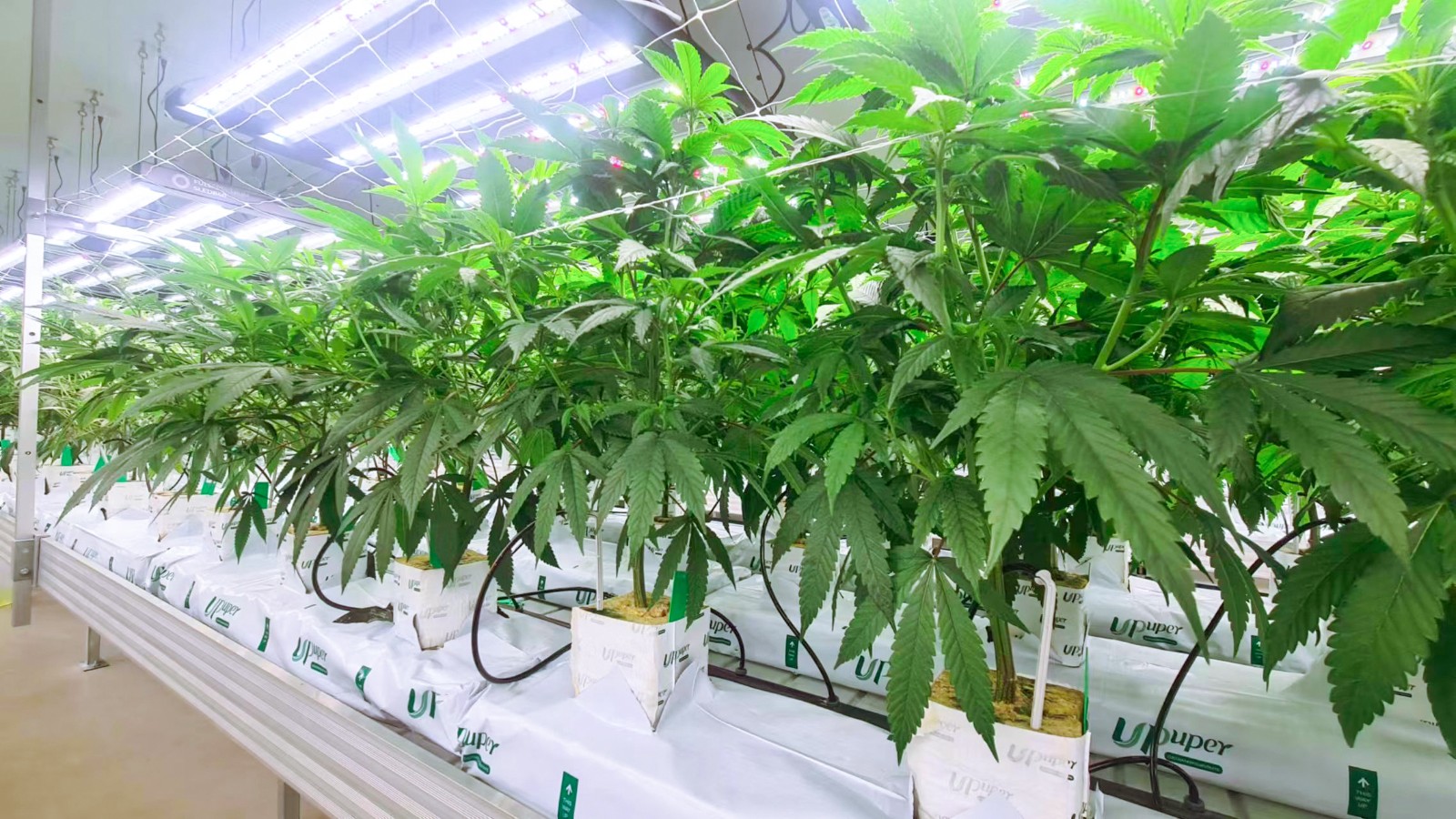UPuper® is the branch brand of Shanghai ABM rock wool Dafeng Co., Ltd., which provides high-quality rock wool substrates for soilless cultivation of Modern agriculture facility. The company is headquartered in Shanghai Hongqiao CBD and the production base is located in Dafeng District, Yancheng, Jiangsu Province, covering an area of more than 233000 square meters with a total investment of 100 million dollars.
It has two world-class production lines, realizing zero discharge of solid waste and waste water and ultra-low emission of waste gas. It is the biggest green rock wool manufacturing base in the whole Asia Pacific region with the largest investment and leading technology and equipment.The main products are Rockwool grow cubes,Rockwool cubes,Seedling plug,Growing Cubes,Grow Plug, etc.
What is stone wool growing slabs?
Stone wool growing slabs, also known as rock wool or mineral wool growing slabs, are a type of hydroponic growing medium used in agriculture, horticulture, and hydroponic systems. These slabs are made from molten basalt rock or other natural minerals, which are spun into fibers and then compressed into dense, mat-like structures.

What are the benefits of using stone wool growing slabs?
Using stone wool growing slabs offers several benefits:
Excellent Water Retention and Drainage: Stone wool slabs can retain a significant amount of water while providing excellent drainage.
Optimal Air Porosity: The porous structure of stone wool promotes proper aeration of the root zone, allowing for the exchange of gases and preventing the roots from suffocating.
pH Stability: Stone wool typically has a neutral pH, providing a stable environment for plant roots.
Structural Stability: Stone wool slabs maintain their structural integrity over time, providing stable support for plants.
Versatility: Stone wool slabs come in various sizes and can be easily customized to fit different hydroponic and soilless growing systems.
Hygienic and Disease Resistance: Stone wool is resistant to bacteria and fungi, creating a cleaner and more hygienic growing environment.
Ease of Handling: Stone wool slabs are lightweight and easy to handle, making them convenient for both small-scale and large-scale agricultural operations.
Temperature Regulation: Stone wool provides insulation to the root zone, helping to regulate temperature fluctuations.
Uniform Growth: The consistent properties of stone wool slabs contribute to uniform plant growth.
Sustainable Production: Stone wool is often made from naturally occurring basalt rock, making it a sustainable and environmentally friendly choice for growing media.
Where can stone wool growing slabs be purchased?
Come UPupper® Purchase stone wool growing slabs!
How do stone wool growing slabs work?
Here's an overview of how they work:
Manufacturing Process: Stone wool is created by melting natural basalt rock or other mineral fibers at high temperatures and then spinning the molten material into thin fibers. These fibers are then compressed and shaped into dense mats or slabs.
Water Retention: Stone wool slabs have the ability to retain water within their fibrous structure. The material can hold moisture, ensuring a consistent water supply to plant roots.
Aeration: The porous nature of stone wool allows for optimal air porosity within the substrate. This promotes a well-ventilated root zone, preventing issues associated with poor aeration, such as root suffocation or the development of anaerobic conditions.
pH Stability: Stone wool typically has a neutral pH, providing a stable environment for plant roots. This helps maintain proper nutrient uptake by the plants, as the pH of the substrate is less likely to fluctuate.
Capillary Action: Stone wool promotes capillary action, allowing water to move upward through the substrate, ensuring even distribution to the root zone. This capillary action helps prevent uneven drying and ensures uniform moisture levels for plants.
Customization: Stone wool slabs come in various sizes and shapes, allowing for easy customization to fit different hydroponic or soilless growing systems. Growers can cut or shape the slabs to suit the specific needs of their crops and growing containers.
Are stone wool growing slabs suitable for all types of plants?
Stone wool growing slabs are versatile and can be suitable for a wide range of plants, including vegetables, fruits, flowers, and herbs. The customizable nature of these slabs allows them to accommodate various plant types and growing conditions. They provide a stable and well-aerated substrate that is conducive to healthy root development, making them suitable for hydroponic and soilless cultivation systems.
What is the best way to use stone wool growing slabs?
The optimal use of stone wool growing slabs involves careful consideration of various factors.
First, ensure that the slabs are pre-soaked to achieve proper water saturation before planting.
Place the slabs in a stable and well-ventilated structure, and position plants in pre-cut or formed holes on the slabs' surface.
Monitor and adjust the nutrient solution to meet the specific needs of the cultivated plants, considering factors like pH and nutrient concentration.
Employ a reliable irrigation system to maintain consistent moisture levels, avoiding overwatering.
Regularly monitor plant health, adjusting environmental conditions such as temperature and humidity accordingly.
Additionally, customize the use of stone wool slabs based on the particular requirements of the plants being cultivated, ensuring a tailored and effective approach to maximize growth and yield.

How often should stone wool growing slabs be replaced?
In general, growers often replace stone wool slabs for each new crop cycle to maintain optimal conditions for plant growth and to prevent the accumulation of salts and potential disease issues. However, some experienced growers may reuse stone wool slabs for multiple cycles by thoroughly cleaning and sterilizing them between crops.
Are stone wool growing slabs safe to use?
Yes, stone wool growing slabs are generally considered safe to use in horticulture and hydroponic systems. The manufacturing process involves melting and spinning natural basalt rock or other mineral fibers, creating a material that is non-toxic and inert. Stone wool is resistant to bacteria and fungi, contributing to a cleaner and more hygienic growing environment.
How does the pH of the soil affect the effectiveness of stone wool growing slabs?
The pH of the soil doesn't directly affect stone wool growing slabs, as these slabs are typically used in hydroponic or soilless growing systems where soil is not present. However, the pH of the nutrient solution used in conjunction with stone wool can significantly impact its effectiveness.
Stone wool itself has a neutral pH, providing a stable starting point for plant growth. However, the nutrient solution's pH is crucial because it influences nutrient availability to the plants. Most plants prefer a slightly acidic to neutral pH range for optimal nutrient uptake, usually around 5.5 to 6.5.
If the pH of the nutrient solution becomes too high or too low, it can affect the solubility and availability of essential nutrients, potentially leading to nutrient deficiencies or toxicities. Regular monitoring and adjustment of the nutrient solution's pH are essential to ensure that the plants receive the proper balance of nutrients for healthy growth when using stone wool growing slabs in hydroponic systems.




